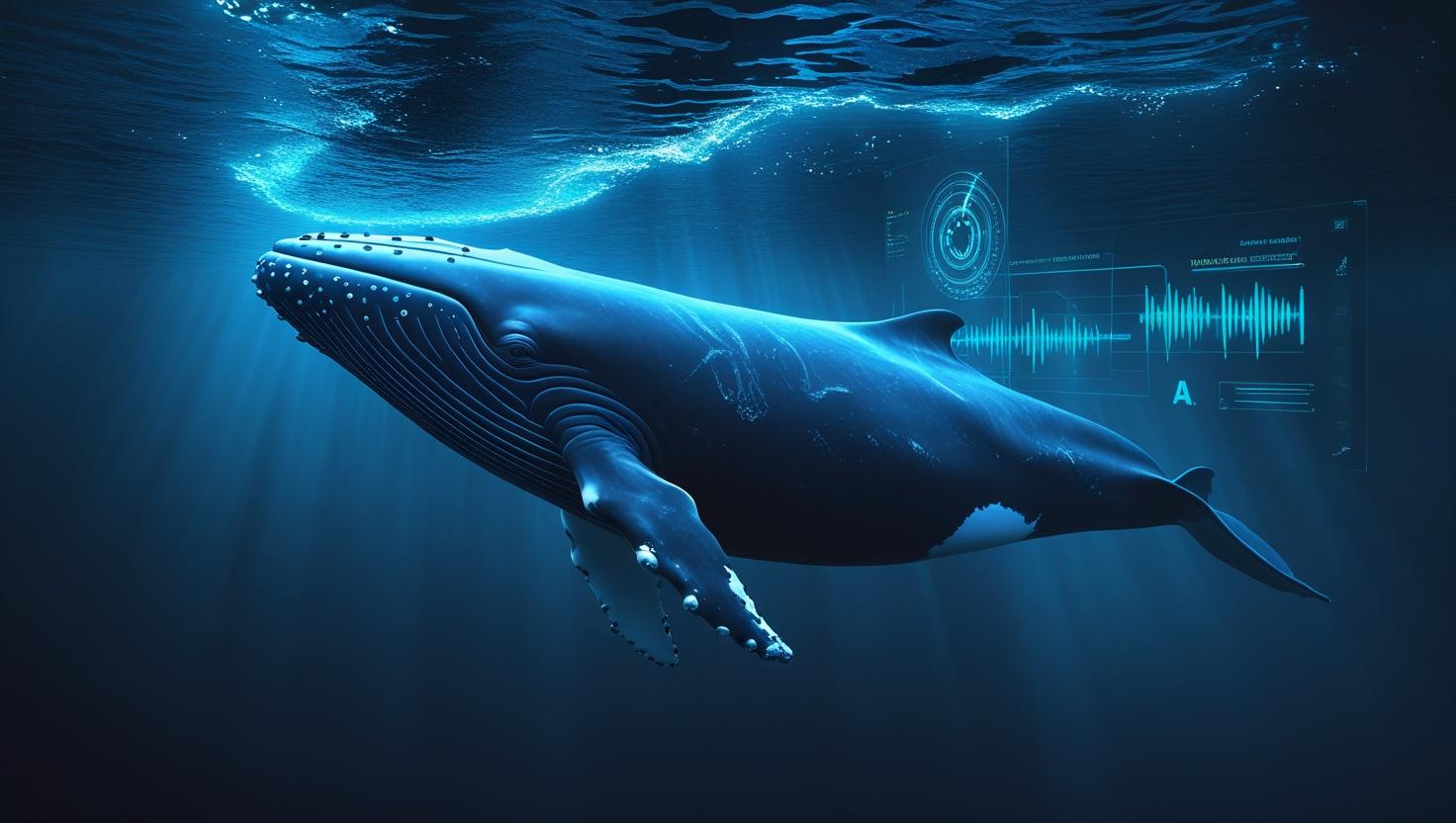The Deep Has Gone Quiet
The ocean has always been a symphony of life. But something strange is happening beneath the waves. The blue whale—Earth’s largest and once loudest creature—is going silent. These iconic giants, known for their booming songs that travel hundreds of miles through the sea, are now emitting fewer calls, at lower frequencies, and in some cases, none at all.
Why are the blue whales quieting down? What does it mean for the health of our oceans? And how can Artificial Intelligence help us understand this mysterious silence before it’s too late?
The Voice of Giants
Blue whales are the vocal titans of the sea. Males produce haunting, low-frequency songs to attract mates and communicate across vast distances. These calls were once so powerful, they could be detected from hundreds—sometimes thousands—of kilometers away.
But over the past few decades, scientists have noticed something unusual: the frequency of blue whale songs is dropping, and in many regions, the whales are vocalizing less often. The songs are quieter. Shorter. And in some cases, disappearing.
What’s causing this eerie quiet?
The Suspects Behind the Silence
There are several theories:
- Ocean Noise Pollution: The modern ocean is flooded with human-made noise—from shipping lanes, oil drilling, military sonar, and even offshore wind farms. This acoustic pollution drowns out whale communication, possibly discouraging them from singing.
- Population Recovery: Some researchers believe that as blue whale populations recover from near extinction, males may not need to sing as loudly or as frequently to find a mate.
- Climate Change: Rising ocean temperatures and changing currents may be shifting whale migration patterns and behavior, influencing when and how they vocalize.
- New Social Dynamics: In some regions, whales might be adapting their communication to new norms—just as human language evolves over time.
Whatever the cause, the fact remains: the ocean’s most powerful voice is going quiet. And we’re only beginning to understand the implications.
Enter Artificial Intelligence: The New Ocean Listener
Tracking whale songs across the vast, dark ocean is no small feat. That’s where AI comes in.
1. Sound Pattern Recognition
AI algorithms can scan thousands of hours of underwater recordings, identifying blue whale calls even when buried in noise. Traditional methods could take scientists years to process; AI does it in hours.
2. Real-Time Monitoring
Smart buoys equipped with underwater microphones (hydrophones) and onboard AI can now detect and transmit whale songs in real time—alerting researchers, conservationists, and even ship captains to the presence of nearby whales.
3. Behavioral Analysis
By combining acoustic data with GPS tracking and environmental data (like sea temperature and salinity), AI can uncover patterns in whale behavior, migration, and song changes that would be invisible to the human eye.
4. Predictive Insights
Advanced AI models are being trained to predict where and when whales are most likely to vocalize, helping direct conservation efforts and reduce collisions with ships.
Why This Matters for Us All
The silence of the blue whales isn’t just a curiosity—it’s a warning. Whales play a vital role in maintaining healthy oceans. Their movement helps circulate nutrients, and their presence is a strong indicator of ocean biodiversity.
If the whales are going quiet, it may signal broader disruptions in marine ecosystems. Declining communication could impact their ability to mate and reproduce, threatening the species’ survival. And since oceans regulate the planet’s climate, this isn’t just an ocean problem—it’s a global one.
AI as a Guardian of the Deep
While we can’t yet speak whale, AI gives us the next best thing: the ability to listen at scale, understand with nuance, and respond with urgency. From mapping whale songs to redesigning shipping routes, AI is fast becoming one of the most powerful tools in ocean conservation.
Imagine a future where AI-powered networks span the globe’s oceans—listening, learning, and helping us protect the creatures who cannot speak for themselves.
Final Thoughts
Blue whales may be going quiet, but AI is helping us hear them louder than ever. As the deep grows more mysterious and fragile, the fusion of technology and ecology offers hope—not just for whales, but for the entire planet.





